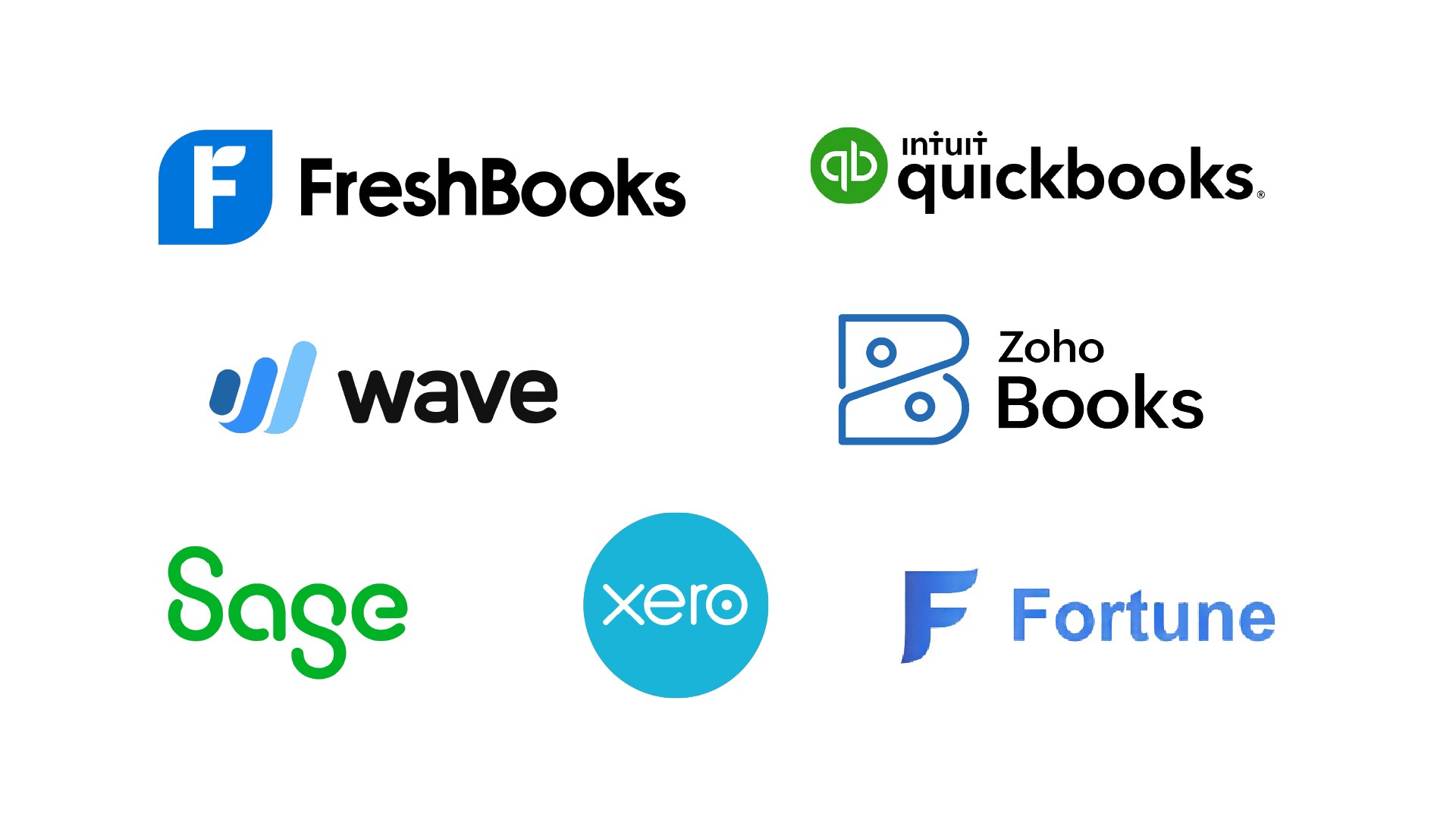
Back to Blog
Share Post:

Software
Jan 3, 2024
Business Intelligence and Accounting Software: How Do They Go Together
Business Intelligence (BI) refers to the process of collecting, analyzing, and interpreting data to make informed decisions, fostering organizational growth.
Accounting software offers real-time financial management, reporting, and analysis. Business Intelligence (BI) uses data to make informed decisions, aiding organizational growth. It provides insights, identifies trends, and measures performance.
Accounting software empowers BI through improved planning, customer insights, data-driven decisions, budget breakdowns, and supply chain visibility. BI streamlines operations, enhances accuracy, and spotlights trends, making it indispensable in the accounting world.
Fortune App, with its comprehensive financial insights and universal bank integration, is a prime example of accounting software that enhances BI and fosters financial clarity.
What Is Business Intelligence?
Why Is Business Intelligence Important?
Following are the reasons why business intelligence is vital for businesses:
1. Extracting Data Insights
Staying competitive in today's fast-paced corporate environment is critical. Business intelligence (BI) enables firms to leverage the power of their data by extracting important insights that allow them to make informed choices.
2. Data-Driven Decisions
With BI, businesses can analyze historical data and current trends, enabling data-driven decision-making. It provides a clear picture of what's working and needs improvement, giving companies a strategic advantage.
3. Improved Efficiency
BI tools streamline data collection and analysis, eliminating manual processes and reducing errors. This leads to more efficient operations, saving time and resources.
4. Enhanced Performance
By tracking key performance indicators (KPIs), BI helps companies measure success and set achievable goals. It's like having a GPS for your business, guiding it towards growth and profitability.
5. Competitive Edge
In a data-driven industry, businesses that leverage BI gain a competitive edge. They respond quickly to market changes, identify emerging trends, and cater to customer needs effectively.
6. Customer Insights
BI also provides valuable customer insights, helping companies understand their preferences and behaviors. This information leads to tailored marketing strategies and improved customer satisfaction.
7. Profit Maximization
Ultimately, BI is a profit booster. It helps businesses identify revenue opportunities, cost-saving strategies, and areas for improvement. It's an essential tool for success in today's business environment.
How Accounting Software Helps With Business Intelligence
Accounting software enhances Business Intelligence (BI) by providing valuable insights. In this section, we'll explore how these tools empower businesses with data-driven decision-making.
1. Improved Planning and Budgeting
Accounting software boosts business intelligence by enhancing planning and budgeting processes. It allows firms to make informed decisions. You can develop more accurate and adaptive budgets with real-time financial data at your fingertips.
You may use this program to evaluate past financial data, manage costs, and anticipate income all in one spot. This, in turn, helps in identifying cost-saving opportunities and revenue-enhancing strategies.
By streamlining the budgeting process, accounting software enables businesses to react swiftly to market changes, ensuring they stay on the path to financial success. In short, it's a powerful tool that transforms planning and budgeting from a headache into a competitive advantage.
2. Improved Customer Spending Insights
Accounting software enhances business intelligence by providing improved customer spending insights. This invaluable tool actively tracks and analyzes financial data, allowing businesses to make informed decisions.
This enhanced insight is a game-changer, helping businesses customize their products and services to meet customer needs effectively. It empowers businesses to allocate resources more efficiently and create targeted marketing strategies.
As a result, companies can increase customer satisfaction and boost profits, all thanks to the valuable customer spending insights provided by accounting software.
3. Improved Financial Dashboards and Visualizations
Accounting software revolutionizes business intelligence with improved financial dashboards and visualizations. These dynamic tools give a real-time view of your company's financial health, painting a clear picture with live data. Complex financial data is made accessible to everyone by using simple charts and graphs. You can track expenses, revenue, and profits at a glance, empowering informed decision-making.
Visual representations make trends and patterns instantly recognizable, helping you spot opportunities or address issues promptly. This streamlined approach enhances collaboration among teams and stakeholders, ensuring everyone is on the same page.
Accounting software transforms raw data into actionable insights, making it an invaluable asset for any business.
4. Increased Visibility into Supply and Equipment Chains
Accounting software enhances business intelligence by boosting visibility into supply and equipment chains. These systems actively track financial transactions, helping businesses monitor the flow of funds and resources. By streamlining financial data, they offer real-time insights into inventory levels, procurement, and equipment maintenance.
With user-friendly dashboards and reports, accounting software provides a clear and comprehensive view of the supply chain, making it easier to identify inefficiencies, optimize inventory levels, and reduce costs.
This increased visibility empowers businesses to make informed decisions, ensuring smoother operations and improved profitability. In a nutshell, accounting software is the key to unlocking valuable insights and enhancing supply and equipment chain management.
5. Improved Data-driven Decision-Making by including External Information Sources
Accounting software improves data-driven decision making for businesses by incorporating external data sources. These systems empower organizations to access real-time information, such as market trends and competitor analysis.
With this external data seamlessly integrated into the accounting software, businesses gain a holistic view of their financial health.
This enriched data pool enables informed and strategic choices, helping businesses to stay ahead of the curve. It's like having a GPS for navigating the intricate world of finance. So, whether it's adjusting pricing strategies or optimizing inventory, accounting software brings a new dimension to decision-making, turning raw data into actionable insights.
6. Better Budget Breakdowns
Accounting software enhances business intelligence by empowering department heads to delve into their financial data. This digital magic enables a more granular budget breakdown.
With this software, managers can effortlessly access their department's financial performance, fostering a deeper understanding of where the money flows and where savings can be made.
By providing this autonomy, accounting software nurtures informed decision-making, allowing department heads to adjust their strategies in real time.
It simplifies data analysis, making it accessible to non-accounting experts, thereby promoting transparency and efficiency. In sum, accounting software transforms budget management into a proactive, data-driven, and empowering process.
What Makes Business Intelligence Better?
Business Intelligence (BI) offers numerous advantages that make it a game-changer for modern businesses.
Firstly, it empowers decision-makers with real-time insights, enabling swift, data-driven choices.
Secondly, BI enhances data visualization, making complex information easy to understand.
Thirdly, it streamlines reporting, automating the generation of reports and saving time.
Furthermore, BI promotes collaboration by allowing teams to share data seamlessly.
It also enhances forecasting accuracy, helping businesses plan more effectively.
Lastly, BI tools are user-friendly, making data analysis accessible to a broader audience.
In summary, Business Intelligence revolutionizes decision-making, simplifies data, fosters collaboration, and boosts accuracy - a must-have for any forward-thinking organization.
Why Is Business Intelligence Vital In the Accounting World?
Business Intelligence (BI) is indispensable in the accounting world for several compelling reasons. It's not just a tech buzzword; it's a game-changer. Let's delve into why.
Informed Decisions
First and foremost, BI empowers accountants to make informed decisions. By collecting, analyzing, and visualizing data, it paints a clear picture of financial health. This, in turn, helps businesses allocate resources wisely and steer clear of financial pitfalls.
Saves Time
BI also saves valuable time. Instead of sifting through stacks of reports, accountants can access real-time data effortlessly. This automation reduces errors and allows accountants to focus on strategic tasks.
Data Accuracy
Furthermore, BI enhances data accuracy. It minimizes manual data entry, reducing the risk of human errors. With accurate data, accountants can produce precise financial statements and comply with regulations more effectively.
Discover Trends
In the rapidly changing business landscape, adaptability is key. BI equips accountants to spot trends and market shifts. This proactive approach enables businesses to stay ahead of the curve and remain competitive.
In summary, BI is not an option; it's a necessity in the accounting world. It streamlines operations, provides crucial insights, and ensures accuracy. Embracing BI is not just a smart move; it's a vital one for accountants and businesses alike.
The Best Accounting Software For Business Intelligence
In today's data-driven business landscape, selecting the best accounting software for business intelligence is crucial. This section explores top choices to help you make informed decisions.
Fortune App
Fortune App plays a crucial role in enhancing business intelligence by providing powerful tools and features that help users gain a deeper understanding of their financial data. Here's how Fortune contributes to business intelligence:
Comprehensive Financial Insights: Fortune offers a streamlined dashboard that provides real-time insights into key financial performance indicators. Users can easily track revenue, expenses, cash flow, and account balances. This comprehensive view allows for better decision-making and strategy development.
Universal Bank Integration: By connecting with over 17,000 bank accounts, Fortune aggregates financial data from multiple sources into one place. This integration allows users to see a holistic picture of their financial health, essential for informed business decisions.
Detailed Transaction Search: Fortune's advanced search feature enables users to find specific transactions across all their connected banks quickly. This detailed transaction history is essential for conducting in-depth financial analysis and identifying trends and patterns.
Expense Category Breakdown: Fortune breaks down expenses by category, helping users pinpoint areas of spending and potential savings. This level of granularity is invaluable for businesses looking to optimize their financial resources.
Automation: With AI-driven automation, Fortune eliminates manual data entry, continuously refreshing and analyzing transaction data. This automation ensures that users have access to updated financial insights and metrics at all times. It saves time and reduces the risk of manual errors.
In summary, Fortune App empowers users with the tools and insights needed to make informed decisions, improve financial management, and achieve business success. It acts as a trusted partner in reshaping how businesses interact with their finances, ultimately enhancing business intelligence and clarity.
Bottom Line
In conclusion, the collaboration of Business Intelligence (BI) with accounting software is a transformational force for modern enterprises. BI uses accounting software data-driven insights to influence strategic choices, improve financial analysis, and optimize operations.
In today's data-driven corporate market, integrating these two tools is critical for maintaining a competitive advantage.
FAQs
How Does Business Intelligence Relate To Accounting?
Business Intelligence in accounting uses data analysis to inform financial decisions, optimizing financial performance and strategy.
How Does Accounting Software Help Businesses?
Accounting software streamlines financial data management, improves accuracy, and facilitates budgeting, leading to more informed business decisions.
How Is Business Intelligence Used In Finance?
Business Intelligence in finance leverages data analytics to analyze financial data, detect trends, and make strategic financial decisions.
How do data analysis and business intelligence rely on accounting and finance?
Data analysis and business intelligence rely on accounting and finance by extracting valuable insights from financial data, enabling informed business decisions and financial strategy development.
Share Post:



